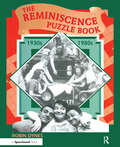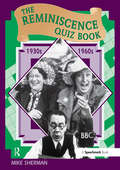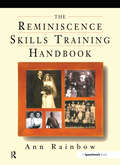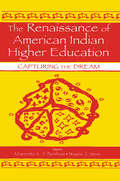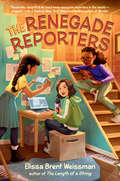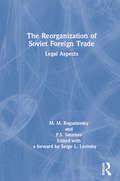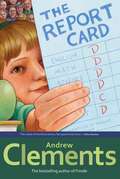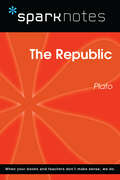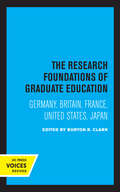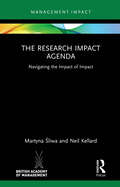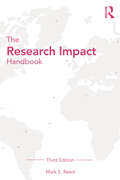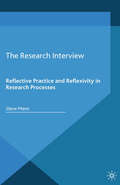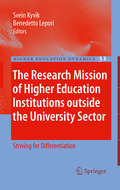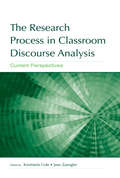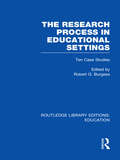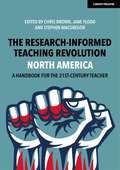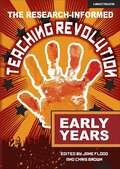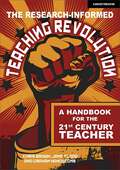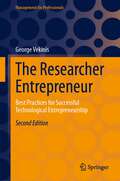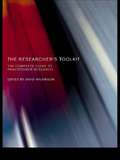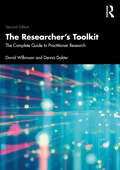- Table View
- List View
The Reminiscence Puzzle Book: 1930s-1980s
by Robin DynesSpanning the years 1930 to 1989, this is a highly practical and enjoyable puzzle book. It covers events, people, entertainment and everyday life and is designed to encourage group participation to recall and discuss their own personal experiences. It is fully adaptable according to the needs and abilities of the individuals within the group.
The Reminiscence Quiz Book: 1930's - 1960's
by Mike ShermanAn enduringly popular, informative and unusual quiz book specifically produced for work with reminiscence groups. Covering the years 1930 to 1969, it draws on memories and experiences of daily life and recalls major events and celebrities. More than 600 questions and answers are offered on four topics - news, people, entertainment, and daily life. Questions can be adapted to all ages and abilities, and answers are supported by a wealth of background information, ensuring that the answers can be discussed to extend the activity.
The Reminiscence Skills Training Handbook
by Ann RainbowThis easy-to-use guide provides an accessible workbook for reminiscence skills training. It includes: information on the history and definition of reminiscence work; the value of the reminiscence experience to older people and their carers as well as practical ideas and suggestions on how to use reminiscence in a beneficial and therapeutic way; how to set up, run and maintain group and individual reminiscence activities; training points and training activities for each section to enhance understanding by making links with the personal experience of the reader; and, emphasis on the role of reminiscence work in the social and emotional care of ethnic minority elders, people with dementia and older people who have been bereaved. This handbook will not only help to promote reminiscence work but also enhance everyday communication between carers and older people.
The Renaissance of American Indian Higher Education: Capturing the Dream (Sociocultural, Political, and Historical Studies in Education)
by Wayne J. SteinThe Native American Higher Education Initiative (NAHEI), a W.W. Kellogg Foundation project, has supported the development and growth of centers of excellence at Tribal Colleges and Universities across the United States. These are centers of new thinking about learning and teaching, modeling alternative forms of educational leadership, and constructing new systems of post-secondary learning at Tribal Colleges and Universities. This book translates the knowledge gained through the NAHEI programs into a form that can be adapted by a broad audience, including practitioners in pre-K through post-secondary education, educational administrators, educational policymakers, scholars, and philanthropic foundations, to improve the learning and life experience of native (and non-native) learners.
The Renegade Reporters
by Elissa Brent WeissmanWhen Ash gets kicked off her school's news show, she becomes a renegade reporter--and makes a big discovery about technology and her fellow students' privacy.Ash and her friends are reporters. They were ready to lead their school news show, The News at Nine, sponsored by Van Ness Media, when an unfortunate incident involving a dancing teacher, an irresponsibly reported story, and a viral video got them kicked off the crew. So Ash, Maya, and Brielle decide to start their own news show, The Underground News. And soon they stumble on a big lead: Van Ness Media, the educational company that provides their school's software, has been gathering data from all the kids at school. Their drawings, their journals, even their movements are being recorded and cataloged by Van Ness Media. But why? Ash and her friends are determined to learn the truth and report it.
The Reorder of Things: The University and Its Pedagogies of Minority Difference (Difference Incorporated)
by Roderick A. FergusonIn the 1960s and 1970s, minority and women students at colleges and universities across the United States organized protest movements to end racial and gender inequality on campus. African American, Chicano, Asia American, American Indian, women, and queer activists demanded the creation of departments that reflected their histories and experiences, resulting in the formation of interdisciplinary studies programs that hoped to transform both the university and the wider society beyond the campus.In The Reorder of Things, however, Roderick A. Ferguson traces and assesses the ways in which the rise of interdisciplines—departments of race, gender, and ethnicity; fields such as queer studies—were not simply a challenge to contemporary power as manifest in academia, the state, and global capitalism but were, rather, constitutive of it. Ferguson delineates precisely how minority culture and difference as affirmed by legacies of the student movements were appropriated and institutionalized by established networks of power.Critically examining liberationist social movements and the cultural products that have been informed by them, including works by Adrian Piper, Toni Cade Bambara, Jhumpa Lahiri, and Zadie Smith, The Reorder of Things argues for the need to recognize the vulnerabilities of cultural studies to co-option by state power and to develop modes of debate and analysis that may be in the institution but are, unequivocally, not of it.
The Reorganization of Soviet Foreign Trade: Legal Aspects
by Serge L. Levitsky Mark M. Boguslavski P.S. Smirnov S.L. Levitsky M. M. Boguslavski D.M. McCauleyTranslated from the Russian. Edited and with a foreword by Serge L. Levitsky. A systematic and authoritative analysis of current Soviet legislation related to the organization and the mechanism of foreign economic relations under perestroika. Of particular interest to prospective partners in joint v
The Report Card
by Andrew ClementsNora Rose Rowley is a genius, but don't tell anyone. Nora's managed to make it to the fifth grade without anyone figuring out that she's not just an ordinary kid, and she wants to keep it that way. But then Nora gets fed up with the importance everyone attaches to test scores and grades, and she purposely brings home a terrible report card just to prove a point. Suddenly the attention she's successfully avoided all her life is focused on her, and her secret is out. And that's when things start to get really complicated....
The Republic (SparkNotes Philosophy Guide)
by SparkNotesThe Republic (SparkNotes Philosophy Guide) Making the reading experience fun! SparkNotes Philosophy Guides are one-stop guides to the great works of philosophy–masterpieces that stand at the foundations of Western thought. Inside each Philosophy Guide you&’ll find insightful overviews of great philosophical works of the Western world.
The Research Foundations of Graduate Education: Germany, Britain, France, United States, Japan
by Burton R. ClarkThis title is part of UC Press's Voices Revived program, which commemorates University of California Press’s mission to seek out and cultivate the brightest minds and give them voice, reach, and impact. Drawing on a backlist dating to 1893, Voices Revived makes high-quality, peer-reviewed scholarship accessible once again using print-on-demand technology. This title was originally published in 1993.
The Research Impact Agenda: Navigating the Impact of Impact (Management Impact)
by Martyna Śliwa Neil KellardThis book contributes to the growing body of work addressing the processes and consequences of national governments’ audits of the performance of higher education institutions (HEIs) in different countries. The book discusses one recent area of focus within these audits, namely the measurement of universities’ societal and economic impact. The Research Impact Agenda offers a problematisation of the research impact agenda, especially in relation to the impact generated by academics based in schools of business and management. It scrutinises the often unintended but nevertheless significant consequences of this agenda for individuals and higher education institutions, such as the reproduction of existing inequalities in academia and the crowding out of other key activities of business schools. It puts forward a range of recommendations for researchers, policymakers, university and business school leaders, and individual academics. The book will be of interest to a wide range of readers – regardless of their formal position, organisational affiliation or career stage – who consider it important to reduce and remove inequalities and inequities within the HE sector and to make universities and business schools more inclusive. The readers will benefit from the opportunity to engage in reflection aimed at transforming the current framing, delivery and assessment of business and management research impact.
The Research Impact Handbook
by Mark S. ReedThis important book will equip you with evidence-based tools you can use immediately to create a step change in your impact. Helping you recognise and demonstrate the wider benefits of your work, it will give you the practical knowledge and confidence to identify practical ways to maximise the impact of your research. Written by renowned impact expert Mark S. Reed, this third edition has been fully updated with the latest evidence and includes new material on the ethics of engagement and impact, using social media, and influencing policy. Offering strategies to effectively engage with diverse groups, the book features: Five principles to fast-track your impact and practical steps to make this happen. Tools and techniques for designing and facilitating workshops, driving impact online, presenting with impact, influencing policy and more. New ‘How To’ guides including how to evidence impacts from social media; capturing the impact of training; making podcasts, videos and infographics; designing projects for impact; starting newsletters; and developing an institutional impact strategy. Packed with practical tips, techniques, templates, case studies and stories, this book is essential reading for PhD students, independent researchers and academic staff at any career stage wanting a clear framework to fast-track the impact of their research.
The Research Interview: Reflective Practice and Reflexivity in Research Processes
by S. MannResearch and Qualitative Interviews brings into focus the decisions that the interviewer faces by taking a data-led approach in order to open up choices and decisions in the process of planning for, managing, analysing and representing interviews. The chapters concentrate on the real-time, moment-by-moment nature of interview management and interaction. A key feature of the book is the inclusion of reflexive vignettes that foreground the voices and experience of qualitative researchers (both novices and more expert practitioners). The vignettes demonstrate the importance of reflecting on and learning from interactional experience. In addition, the book provides an overview of different types of interviews, commenting on the orientation and make-up of each type. Overall, this book encourages reflective thinking about the use of research interviews. It distinguishes between reflection, reflective practice and reflexivity. All the chapters focus on recurring choices, dilemmas and puzzles; offering advice in opening out and engaging with these aspects of the research interview.
The Research Mission of Higher Education Institutions outside the University Sector
by Benedetto Lepori Svein KyvikEven if in most countries non-university higher education institutions did not have originally a research mandate, it is well known that in most cases these institutions have progressively developed research activities and, at least in some countries, the State now has recognized the research role of these institutions and provided support and funding. Moreover, in many countries the role of research in polytechnics, 'fachhochschulen', 'hogescholen', university colleges, etc is on the political agenda. Despite the importance of the issue, there are very few in-depth studies of research in the non-university sector. These studies show that the development of research in these institutions leads to quite complex interactions with universities, both in the sense of convergence (academic drift) and/or of differentiation of a specific research mandate oriented towards the regional economy. Therefore, this book aims to fill this gap by first analysing a number of transversal issues related to the research mission of these institutions. In its second part it gives an overview of the state of the art in eight European countries.
The Research Process in Classroom Discourse Analysis: Current Perspectives
by KimMarie Cole • Jane ZuenglerThis volume gives intellectual space to a range of current perspectives on classroom discourse research and provides a forum for conversations about the research process. Classroom discourse researchers from different theoretical perspectives provide five separate analyses of the same instructional unit in a high school biology class, using the same set of data. Interwoven with the five research reports are several conversations among the editors and researchers regarding specific aspects of the research process. These conversations illuminate some of the actual decisions that researchers make when looking at data and crafting their analyses. This book is intended for graduate students, researchers, and teacher educators across the fields of applied linguistics and education who are interested in studying classroom discourse and, more generally, language-in-use. With its focus on both the research process and the outcomes of research, as well as on the theory-method relationship, this book is relevant for courses in research methodology, language in education, applied linguistics, discourse analysis, language development, and multiculturalism in the classroom.
The Research Process in Educational Settings: Ten Case Studies (Routledge Library Editions: Education)
by Robert G. BurgessThis book presents a series of research biographies based on research experiences in the study of educational settings. The main aim is to provide a set of first person accounts on doing research that combine analysis with description. The contributors have been drawn from the disciplines of sociology and educational studies and have all conducted ethnographic work or case studies in a variety of educational settings.
The Research-Informed Teaching Revolution - North America: A Handbook for the 21st Century Teacher
by Chris Brown Jane Flood Stephen MacGregorWe know that educators and education systems at large face countless decisions every day. We also know that grounding educational decisions in research can improve the likelihood of desirable teaching and learning outcomes, as well as reduce the likelihood of unintended consequences. Research is just one among many types of evidence used in educational decision-making, however. So being “evidence informed” is as much about engaging with research evidence as it is engaging with practice-based evidence (e.g., professional judgment) and data-based evidence (e.g., school performance data). How can educators become evidence-informed? In our view, the best approach is to learn from examples from experts of how research can be integrated with these other types of evidence, and so regularly inform our own everyday practice. With that in mind, this practical handbook offers 16 illuminating chapters that provide a wealth of advice and perspectives on the subject written by North American educators who are striving to realize the idea of research-informed practice. Key themes – reflective practitioners, networks and collaboration, trust -emerge to help teachers formalize, prioritize and mobilize the use of research-evidence in schools.
The Research-Informed Teaching Revolution - North America: A Handbook for the 21st Century Teacher
by Chris Brown Jane Flood Stephen MacGregorWe know that educators and education systems at large face countless decisions every day. We also know that grounding educational decisions in research can improve the likelihood of desirable teaching and learning outcomes, as well as reduce the likelihood of unintended consequences. Research is just one among many types of evidence used in educational decision-making, however. So being “evidence informed” is as much about engaging with research evidence as it is engaging with practice-based evidence (e.g., professional judgment) and data-based evidence (e.g., school performance data). How can educators become evidence-informed? In our view, the best approach is to learn from examples from experts of how research can be integrated with these other types of evidence, and so regularly inform our own everyday practice. With that in mind, this practical handbook offers 16 illuminating chapters that provide a wealth of advice and perspectives on the subject written by North American educators who are striving to realize the idea of research-informed practice. Key themes – reflective practitioners, networks and collaboration, trust -emerge to help teachers formalize, prioritize and mobilize the use of research-evidence in schools.
The Research-informed Teaching Revolution - Early Years
by Chris Brown Jane FloodResearch Informed teaching is big news! Indeed one might argue that there has been a bottom up revolution encouraging teachers’ use of research (e.g. ResearchED). But at the same time there is a gap between what teachers do and what research suggests might provide effective ways to support young children’s learning. It’s not that a wealth of educational research doesn’t exist (just look at the What Works Clearinghouse, the Best Evidence Encyclopaedia or Hattie’s Visible Learning), but the Early Years sector is often under-represented. This book is an attempt to address this disparity and provide Early Years leaders and practitioners with an understanding of how to embed this research within their everyday practice offering top tips of how others in the field have done this and considering topics such as outdoor learning, early writing skills and parental engagement. Drawing on the wisdom of those at the top of their game, this book intends to provide just that: a practical handbook for EYs practitioner and leaders that can help make the research use revolution a reality.
The Research-informed Teaching Revolution - Early Years
by Chris Brown Jane FloodResearch Informed teaching is big news! Indeed one might argue that there has been a bottom up revolution encouraging teachers’ use of research (e.g. ResearchED). But at the same time there is a gap between what teachers do and what research suggests might provide effective ways to support young children’s learning. It’s not that a wealth of educational research doesn’t exist (just look at the What Works Clearinghouse, the Best Evidence Encyclopaedia or Hattie’s Visible Learning), but the Early Years sector is often under-represented. This book is an attempt to address this disparity and provide Early Years leaders and practitioners with an understanding of how to embed this research within their everyday practice offering top tips of how others in the field have done this and considering topics such as outdoor learning, early writing skills and parental engagement. Drawing on the wisdom of those at the top of their game, this book intends to provide just that: a practical handbook for EYs practitioner and leaders that can help make the research use revolution a reality.
The Research-informed Teaching Revolution: A handbook for the 21st century teacher
by Chris Brown Jane FloodResearch informed teaching is big news! There has been a bottom up revolution encouraging teachers' use of research. But at the same time there is a gap between what teachers do and what research suggests might provide effective ways to support student learning. It's not that a wealth of educational research doesn't exist, but what teachers, school and school system leaders need is an understanding of how to embed this research within everyday practice. Drawing on the wisdom of those at the top of their game, this book intends to provide just that: a practical handbook for teachers and leaders that can help make the research use revolution a reality. With contributions from leading 'do-ers' in the field of knowledge mobilisation including: Daniel Muijs (Ofsted); Cat Scutt (Chartered College of Teaching); Jonathan Sharples (EEF); Julie Nelson (NfER); Adam Boxer (teacher and blogger); Gary Jones (blogger); David Weston (Teacher Development Trust) and Caroline Creaby (Sandingham Research School), the book provides a wealth of insight. This knowledge is then further distilled into useable guidance and best practice principles that can be readily implemented at classroom, school and teaching school alliance level.
The Research-informed Teaching Revolution: A handbook for the 21st century teacher
by Chris Brown Jane FloodResearch informed teaching is big news! There has been a bottom up revolution encouraging teachers' use of research. But at the same time there is a gap between what teachers do and what research suggests might provide effective ways to support student learning. It's not that a wealth of educational research doesn't exist, but what teachers, school and school system leaders need is an understanding of how to embed this research within everyday practice. Drawing on the wisdom of those at the top of their game, this book intends to provide just that: a practical handbook for teachers and leaders that can help make the research use revolution a reality. With contributions from leading 'do-ers' in the field of knowledge mobilisation including: Daniel Muijs (Ofsted); Cat Scutt (Chartered College of Teaching); Jonathan Sharples (EEF); Julie Nelson (NfER); Adam Boxer (teacher and blogger); Gary Jones (blogger); David Weston (Teacher Development Trust) and Caroline Creaby (Sandingham Research School), the book provides a wealth of insight. This knowledge is then further distilled into useable guidance and best practice principles that can be readily implemented at classroom, school and teaching school alliance level.
The Researcher Entrepreneur: Best Practices for Successful Technological Entrepreneurship (Management for Professionals)
by George VekinisDiscover a transformative book that equips aspiring 'researcher entrepreneurs' with invaluable strategies to avoid common start-up mistakes. Unveiling a fresh perspective, it emphasizes that technological researchers already possess critical entrepreneurial traits, merely needing the right approach to succeed. From preparing and setting up a tech start-up to illuminating best practices, this book sets you on the path to triumphant technological entrepreneurship. This essential guide tackles the paradox of start-up failures, even after a very promising start, providing insights into how to overcome internal and external problems and obstacles and secure a thriving future. Tailored for researchers aiming to commercialize their technology by setting up a start-up and for technology transfer strategists supporting academic commercialization, the book ensures clarity by avoiding jargon and employing real-life case studies and exercises. Decision-assisting activities such as a "Commercialization Readiness Index (CRI)" and a "Market-prioritization Decision Matrix" offer valuable tools to help a researcher become a successful entrepreneur. Whether you're a seasoned researcher or an aspiring entrepreneur, this book will empower you to harness your potential, turning visionary ideas into flourishing businesses. Embrace the entrepreneurial journey and embark on a transformational ride towards success in the dynamic world of technological entrepreneurship.
The Researcher's Toolkit: The Complete Guide to Practitioner Research (Routledge Study Guides)
by David WilkinsonThe Researcher's Toolkit is a practical rather than an academic text for all those undertaking, perhaps for the first time, small-scale research. Written by an experienced team of practising researchers, it covers the entire research process - from designing and submitting a research proposal through to its completion. This book is suitable for all researchers, but is particularly designed for those practitioner-based researchers from the fields of education, social work, nursing, criminal justice and community work. This fresh new idea for those conducting small-scale research comes from a team of practising researchers who possess a broad range of experiences and knowledge of research design, execution and completion. They write in a user-friendly style that those researchers new to the subject will find easy to follow and understand. It will act both as a roadmap to planning, execution and completing research and also as a dip-in reference guide. Using features such as activity boxes to highlight key concepts and short summary boxes to indicate fundamental elements of the research area under discussion, this accessible book will be of great value to all who read it.
The Researcher's Toolkit: The Complete Guide to Practitioner Research (Routledge Study Guides)
by David Wilkinson Dennis DokterDesigned for those undertaking research for the first time, this fully updated edition of The Researcher's Toolkit is a practical and accessible guide for all those partaking in small-scale research. Jargon-free and assuming no prior knowledge, it covers the entire research process, from defining a research topic or question through to its completion. This second edition has been fully revised by a collaborating team with a wealth of knowledge and practical experience in research project work. Including activity boxes to highlight key concepts and short summary boxes to indicate fundamental elements of various research areas, the chapters cover: The importance of research and framing your research question and research ethics Practical elements associated with planning and executing your research activity The application of survey-based research methods and the value provided by social media as data collection devices Deploying both quantitative and qualitative tools and techniques to analyse research data Writing up your research work and preparing it for wider access and consumption Examining the effect of your research work through assessing or measuring its impact The Researcher’s Toolkit is a must-read guide for students and budding researchers as well as educators seeking to explain academic research and writing to their pupils. It will benefit anyone looking to complete a research project whether inside academia or beyond.
